It is 2016, I am sitting in a college classroom and our professors start talking about the immigration crisis at the border. In preparation for our class trip, they start prompting questions regarding this topic: What is causing all these children to come? What are some solutions we might come up with? How can we help? How Christians should respond to this crisis? As people start sharing their answers, I try not to get too involved and instead of talking like I usually do, I decide to listen. Then, one of my classmates made a statement that has never left my mind nor my heart. She stated,
“Well, these moms say they love their children, but if I truly loved my child, it would never cross my mind to send him to another country. Why would a mother do that? That is not what motherly love does .”
My heart sunk as I heard those words. I had been very good about keeping my “shield” up for the day, but this comment hit home. I responded to this controversial comment without getting too involved. However, I knew exactly the response to her question. I knew why a mother would do that.
Let me take you on a journey through my memories, not to convince you to think this immigration crisis is right or wrong, or to give you the answer as to what the US government’s response should be, but only to shine a light into the “Why?”
It is good Saturday of 2010; I am in the kitchen with my sister building a double layer sandwich because we are about to watch some movies. As we are laughing and joking about how Mom is going to be so mad if she sees us with our double layer sandwiches right after we had just had dinner, we hear a rumble and a sound like someone going very fast through our street. We look out of the kitchen window and it seemed like an action movie was going to be filmed.
There were about 100 big trucks passing right in front of our house as if there was going to be a truck parade at 7:00 pm that day. My parents heard the noises as well (Let me add that unlike in Texas, for us to see a big truck was something out of the ordinary). As my mom peeks through the upstairs window, one of the guys in the back of a truck sees her and starts shooting at our house. My mom runs down the stairs and screams, “AL PISO!! AL PISO!!” which means “to the ground.” We stayed laying on our living room floor for at least 15 minutes. My sandwich was destroyed. Little did we know that was just the start of a living nightmare.
For the next months and years, things started getting worse, and shootings started happening very often – outside of my school, outside of the market – our town lived in fear. I couldn’t go out to see my friends because of the “what if’s” that started going through my parent’s minds. They preferred for us to “hate” them for the day than to risk never seeing us again. One night in 2011, we started hearing loud noises like someone was hitting our gate or our front door to get in. My dad took us to the bathroom upstairs. By this time, we knew the drill. The room with the least windows was the safest. My dad went downstairs and soon he realized it was not our home getting broken into — it was the house next door. From that day, my siblings and I would become prisoners in our own home.
For about 9 months, we were unable to go to our backyard, go out and play in the street, couldn’t go to grandma’s house so she moved in with us. Our dad would hide us in our van as we were leaving for school because he did not want our new neighbors to notice he had daughters, and to his eyes, we were the most beautiful princesses in town. He couldn’t afford to lose us. Some days we couldn’t go to school because our neighbors’ trucks were blocking our gate and asking them to move was not an option.
I can’t tell you how many more nights we spent as a family locked in our bathroom, grandma and I praying all the Psalms and prayers she had taught us, Mom holding my little brother and Dad looking out the tiny window just in case he saw someone in our backyard. On one of those occasions, our neighbors brought the war to our neighborhood. As we hid in the bathroom and prayed, we could hear the cries and screams of those injured and how one of them yelled to another he had been waiting to kill him. Tears rolled down my eyes. It was like the devil himself was running around loose in our neighbor’s backyard.
In mid-2012, I wake up and my mom is crying at the foot of the bed. She looks at me and tells me. Baby, your uncle has been killed. These words turned my world upside down. He had been the person I looked up to because he was a doctor and my dream was to become an awesome doctor like him. They had taken away my freedom, but I could not bear the pain of them taking away someone I loved.

“ When you see me flying remember you painted my wings. Thanks Mom and Dad.”
That day I decided to start packing my things and planning for somewhere to go. In my prayers, I realized that the only way I could help my hometown one day was to become educated. In 2015, I came to the United States to Presbyterian Pan American School. My parents did not have a lot of money, but I promised the admissions director I would be top of my class and get a scholarship for college if I could get a scholarship to attend. For the 3 years I was there, I would pray every night for my parents to be safe, for no one to hurt them. I was safe, but they weren’t. My parents came to visit me as much as they could, every three to five months. My mom cried every time she got there and cried even more when she left me there again. I held back the tears because I wanted to be strong for them. Never again would we be at the house they built together, living as a family; no more birthday parties in our backyard; no more kisses before school: our days coming from school and waiting for dad to come home so we could all eat at the table together; all gone. In my senior year, my little brother came along to boarding school with me. You could see my parents’ pain in their eyes, but it was all worth it to them because we were safe.
Now you might understand a little of why my heart sunk that day in my classroom when they referred to the parents of immigrant children as heartless and their actions a sign of untrue love and irresponsibility. I had fled from similar conditions; however, my parents had more financial stability to be able to pay for a visa for me to be here legally. But the reason behind my parents sending me to another country was the same reason those parents had — the purest form of love.
Now you might understand a little of why my heart sunk that day in my classroom when they referred to the parents of immigrant children as heartless and their actions a sign of untrue love and irresponsibility.
Today, 7 years after I came to the United States and left home, I am grateful for all the opportunities God has put in my way, especially attending college. I am glad my parents loved me enough to sacrifice our time together and send me away for my safety. Things back in our hometown are not much better and I am not sure when they ever will be.
These pasts months I have seen the “why?” question come up so many times as the immigration issues arise again. Many of the comments in social media try to answer this question by defining immigrants as criminals, heartless, people that won’t love America. However, I don’t think this question can be answered by closing our ears to the voices of those that are immigrants. I am compelled to share my story so it can shine a light into these controversial discussions and give you insight as you explore your faith and think about what you can do as a Christian in the face of this crisis.
All I can tell you is that if you look into my parents’ eyes, you can still see the pain of letting their children fly away too early. But louder than the hurt, is their relentless love for us. Only then can you understand why.
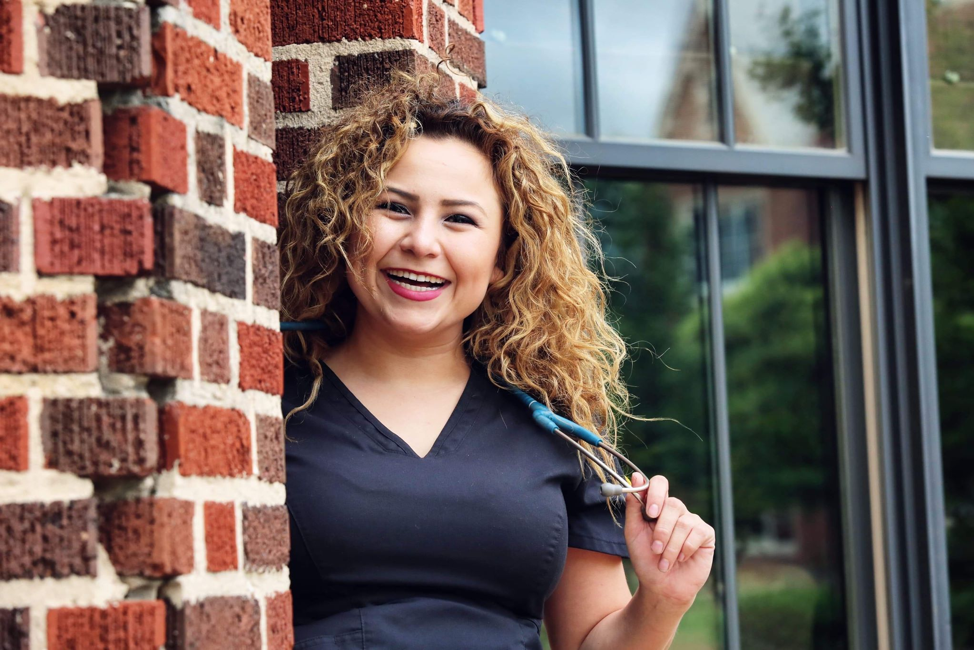
Monika Ruiz Garcia was Raised in San Fernando, Tamaulipas, Mexico and immigrated to United States in 2012 to attend Presbyterian Pan American School in Kingsville, Texas. During her senior year, she was awarded a full scholarship for Schreiner University. In May, she graduated with a Bachelor of Science in Nursing from Schreiner University and relocated to San Antonio, Texas where she currently lives with her husband Andres. She is passionate about social justice issues around the world thus, her goal is to become a missionary nurse and fund a non-profit in her hometown to help with education and health disparities.

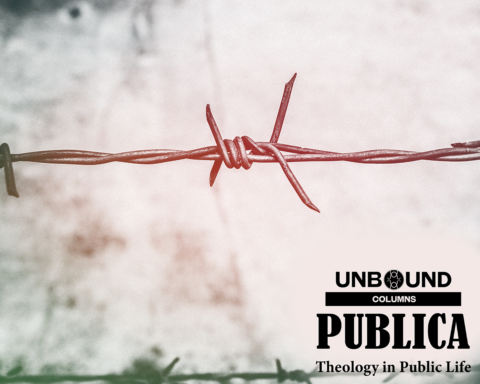
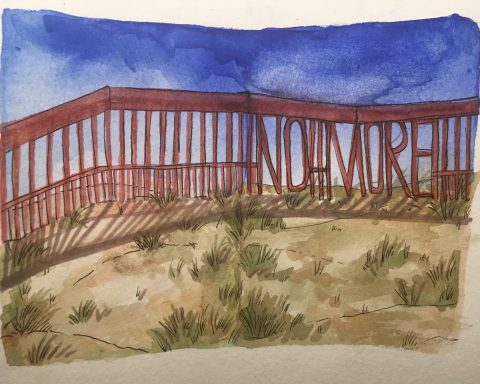
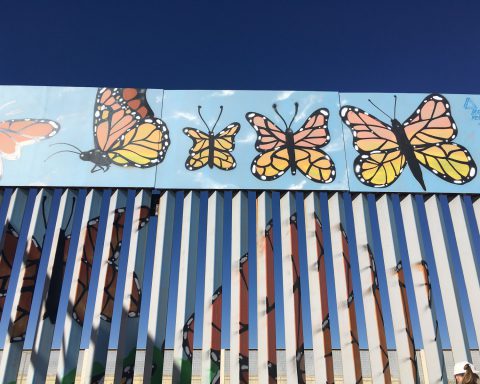
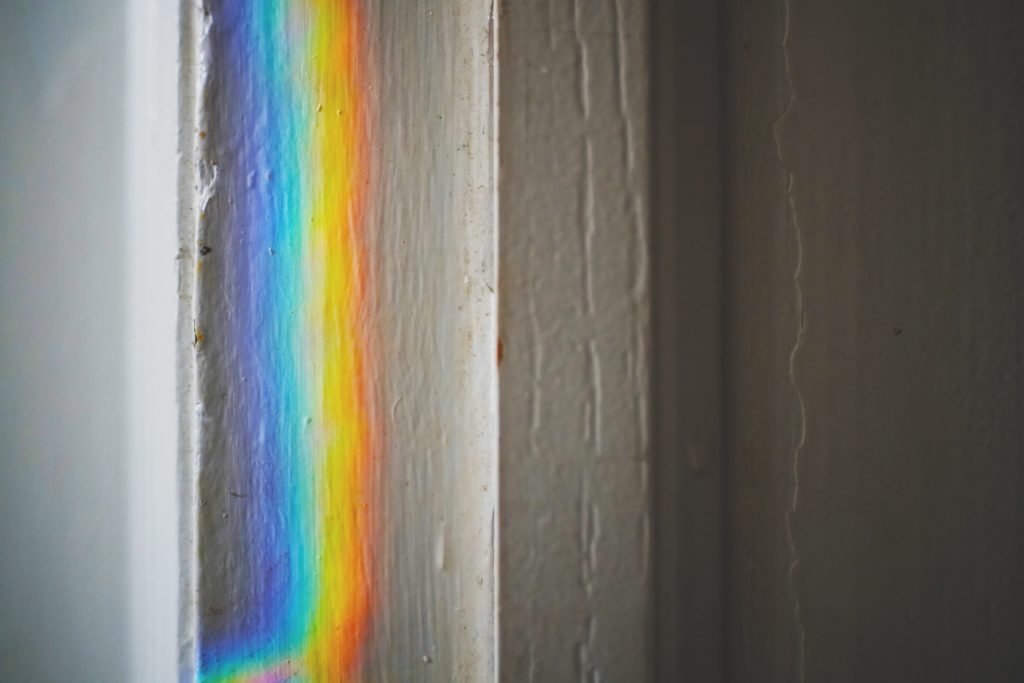

Unbound Social